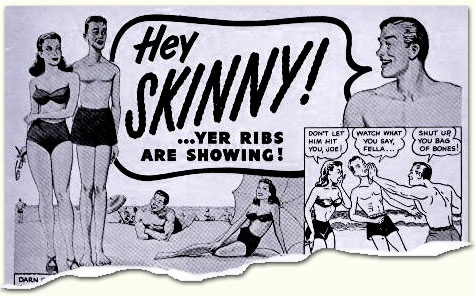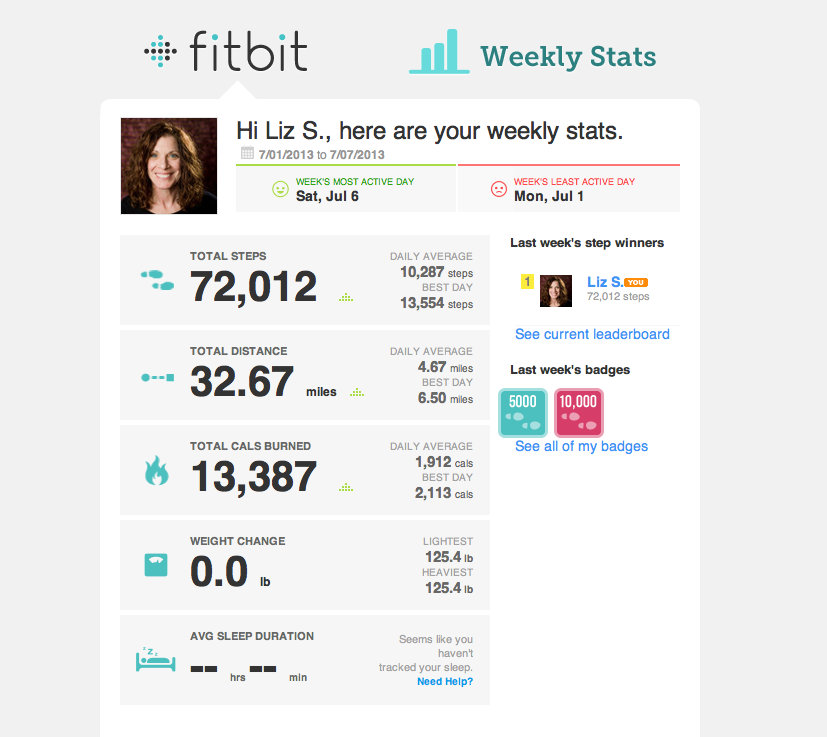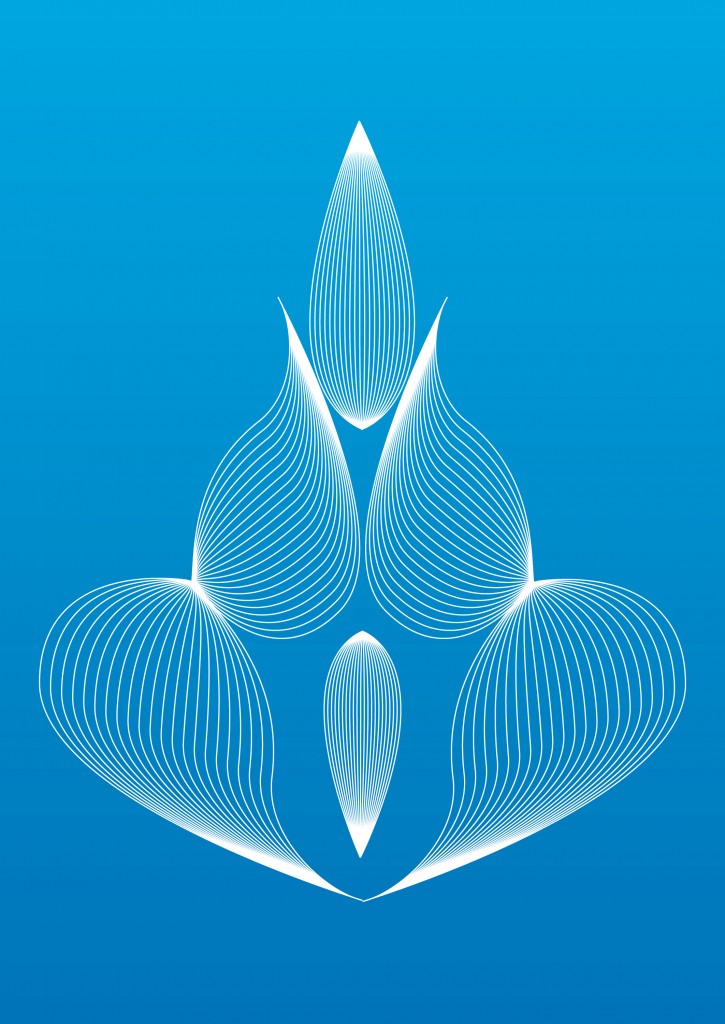Guyside: Does my gut look big in this world?
This is the first installment of a new Flashfree column by Bob LeDrew. Guyside is one man’s take on some of the issues that I’ve been addressing for years on FlashFree. So, show some love, eh? And share widely!!! — Liz
If Liz wants to “rebel, reveal and revel in the here and now,” I’m in. So why should you listen to me? Good question. I’m not a doctor. The only “-ist” tag that applies to me is “bicyclist.”
What I am is a guy approaching midlife with many of the same events and issues in my past and present that you likely have. Aging parents? Yup. Experience with acute and chronic illnesses? Yup. One of the seminal events of my adult life was being diagnosed with bladder cancer in 2006; one of the seminal events of my childhood was the loss of a brother to suicide.
Health isn’t a Boy Scout badge to achieve and forget about. And it’s not something you can only achieve with a team of professionals doing everything from dosing you with the newest supplement or pushing you to that 300th crunch. Real health, as I see it, is more like a gyroscope. Sometimes it gets knocked off its axis, and you have to give it time to get back into balance. And it’s about more than little blue pills, marathon running, or getting just the right amount of gray in whatever hair you have left.
It’s about knowing your body and your mind, and working with them to find balance points.
I used to be a journalist, once upon a time, and my plan is to use this column as an excuse to learn about issues that matter to me and I think will matter to you too. The more feedback you give me, the better a job I can do for me and for you.
Now, on to the column!
Guyside: Does my gut look big in this world?
There’s no shortage of discussion in this world about women and body image. But as a guy, let me tell you that we get those issues going too, especially at this time of year when the temperatures rise and the shirts come off. Or at least are supposed to.
One friend pointed out to me that her husband and his friends (who, she says, “look good!”) will NOT take their shirts off. I know that in the past when I’ve gone to company picnics and the like, the idea of my torso on display is a little off-putting to me (or perhaps it’s that it’s going to be off-putting to others that’s off-putting to me).
So where does all this come from? And do men work through body image issues differently than women?
Well, for me, there are a few things that I’ve noticed as I’ve aged. Throughout my teens and twenties, I could and did eat EVERYTHING I wanted, in great quantities. And whatever I ate, I still had a body shape that once inspired my dad to ask me if I had to run around in the shower to get wet.
In the last 15 years, that changed. Now, while I can still eat a LOT of food, I have immediate aftereffects, and I also have that longer-term effect of going from six-foot-one and 140 to … looking like a pear perched on two chopsticks. Of course, there’s the hair growth in surprising places. The ears bug me. The back, not so much for me, although the person who shares my life regularly threatens me with waxing or electrolysis.
 When I turned 30, I discovered a sport that I really enjoyed: cycling. And while I rely on cycling for both physical fitness and stress management, I have to admit that the classic cyclist’s body is not Michelangelo-worthy. Big legs, small arms, perhaps best illustrated in the great animated film “The Triplets of Belleville” (right)
When I turned 30, I discovered a sport that I really enjoyed: cycling. And while I rely on cycling for both physical fitness and stress management, I have to admit that the classic cyclist’s body is not Michelangelo-worthy. Big legs, small arms, perhaps best illustrated in the great animated film “The Triplets of Belleville” (right)
And, I suspect, like women, I look at male athletes or entertainment stars and think about what I could do to make my body look like theirs. Which rarely translates into me actually DOING anything to create that chiseled body I see onscreen.
But I know only too well that my body will NEVER be confused for that of Ryan Gosling or Matthew McConaughey.
Blogger Kate Fridkis writes: “I have heard guys talk in such black and white terms about their decisions. Something is wrong. They’re supposed to take charge. If there’s a problem, it needs to be fixed. Weight needs to be lost, muscle needs to be gained, it’s that straightforward… Guys have told me. ‘Either I look good or I look like shit.'”
She argues that this sort of black-and-white, all-or-nothing thinking is more characteristic of men than of women. That may well be. What’s obvious from casual conversations with friends of both sexes about body image is that we all have issues around it. I think it’s more common that men throw up their hands and “give up” on their body, where it seems that women are much more persistent in trying to mold themselves into the body they believe they “should” have by various means.
What do you think?
Read MoreWednesday Bubble: It’s Amazing!
Snake Oil. It’s pervasive in health and it’s important to maintain your vigilance and common sense. So, if someone promises you a product that is NON-TOXIC with NO DRUG INTERACTIONS, a technology that touches just about every aspect of health imaginable, directs you to a website entitled yesitsamazing, you have to step back and wonder what the heck.
What’s so amazing you ask?!
Redox signaling molecules — the very same molecules that exist within cells — that scientists have now suspended in a saline solution so that they work OUTSIDE THE BODY to heal just about everything from asthma and bladder leakage, to restless leg syndrome, cardiovascular disease and Alzheimer’s. My goodness, it’s a miracle, truly amazing!!!!! Or as the folks over at Science Based Medicine describe it, “water and salt.”
The folks pitching this miracle supplement, better known as ASAE, claim that they have data supporting the efficacy of chemically recombined molecules. In fact, ASAE theoretically replenishes signaling molecules that are lost during the aging process.
- Promotes enhanced immune function
- Boosts efficiency of the body’s own antioxidant by 500%
- Offers proven superior support to athletes (in a study of 17 people, by the way, with no control group for comparison)
Honestly, you probably need ASAE as much as you need a glass of salt water. Amazing? Hardly.
Who put the ‘men’ in menopause? Part deux.
Bob LeDrew, that’s who!
There’s some changes going on and it’s not of the menopausal kind. Starting next week, in fact, my friend and sometimes partner in Words with Friends is joining FlashFree with his new monthly column: Guyside.
Yup, Bob’s going to bring a bit more y into our x’s, testosterone into the estrogen and hopefully, bridge some of the communication gaps that pervade this thing we call midlife.
The few glimpses that I’ve been afforded not only excite the hell out of me but, I know that this new twist is going to shake up this space in ways that I could only dream of previously.
Stay tuned. Menopause has got a ‘brand new bag’ (sorry, my friend!) and his name is Bob!
p.s. If you didn’t catch his guest post last month, Falling into the trips of masculine invulnerability, you are missing out. Check it now!
Read MoreWednesday Bubble: My Fitbit Flex
I have been meaning to share my experiences with the fitbit flex every since it arrived in my mail two months ago. Fortunately, a FaceBook thread debating the merits of wearable mobile health devices prompted me to finally sit down and gather my thoughts. True confession: this my personal opinion and nothing more.
The fitbit flex. Pretty nifty, right? However, anyone who knows me well will want to know why I purchased one in the first place; after all, I hardly need motivation to go to the gym or get on my bike.
Weight gain. That’s right, weight gain (disregard the number below – it’s not reflective of what I am referring to). And while a few pounds is hardly cause for concern, those of you in the midlife set will understand that some of the changes that take place in our bodies don’t always bode so well. Hence, I decided to take charge, contacted an RD to discuss my eating patterns and decided to monitor my activity a little more closely. The rub? The flex doesn’t really monitor one’s activity very well.
In fact, if you are not upright, it may not monitor your activity at all. That takes a bit more motivation to take the time to input your activity, time spent doing the activity, etc, time that might be better spent actually doing more of that activity.
If you look at my numbers over the past week, they look pretty good:
However, this is what they don’t show:
- Hours spent on the recumbent bike: 5
- Hours rowing: 2
- Hours gardening: 2
- Hours spent doing housework: 3
They also don’t account for the fact that the battery ran out of juice a few times and I had to take the flex off for a recharge.
Moreover, after the first week, I stopped monitoring my sleep. It didn’t appear to be very accurate. And calories consumed or burned? Fuhgeddaboutit! If the band is not accurately reflecting my activity and I am not inputting any information about the food I’m eating, it’s hard to accurately determine how many calories I am burning, right?
Is there anything that I like about the flex?
It’s lightweight and I usually forget that I’m wearing it. That’s a lovely feature. I think it’s cool and although the weekly reports are not quite right, it’s still nice to know that I have daily goal — 10,000 steps — that I am trying to reach if not surpass. However, as a tool to effectively monitor what I am doing and how I’m doing? The flex gets about a 3 out of 10 in my book. I want easy, accurate and intuitive. I want a device that thinks for me and not the other way around. Clearly, when you only spend $99 you are getting a Nissan and not an Infiniti. But, if you are going to drop the dollars in the first place, shouldn’t you know what you are buying?
Admittedly, I ordered the flex before it became available. As an early adopter, I guess that I got what I paid for: no guarantee.
On the flip side. I know that anecdotally, those of my friends who have difficulty motivating themselves to move more have been inspired by the flex and other mobile health devices. Moreover, data from one study demonstrated that users of a smartphone monitoring application were likelier to both log steps regularly and had a greater odds of exceeding the designated 10,000 step goal per entry. Less clear, however, was whether or not these changes in behavior would take hold permanently or were simply an anomaly of the shiny new object syndrome.
Already, I find myself losing interest in the flex and will likely abandon it over time. I find that I am no longer motivated to log in the extras that the flex can’t record. An hour with my personal trainer would have likely been a better use of my money.
What about you? Do you have a flex or some other device? What do you like about it or dislike about it? Are you more or less motivated now that you have a device or will it end up in the land of lost tech toys?
Inquiring minds…
[Disclosure – Fitbit did not approach me with a suggestion to purchase a flex or write a review. The words, thoughts and opinions expressed are solely mine without bias or intevention.]
Read MoreSleep and mindfulness
Up to 63% of women are affected with sleep issues, in particular insomnia, during and after menopause. It’s no wonder that I can’t stop writing about sleep. And, while there are numerous hypotheses as to why insomnia, i.e. difficulty falling asleep or staying asleep more than three times a week (or, not having refreshing sleep just as frequently) affects women during the ‘pause more than at other times in their lives, relief appears to be more than a few zzz’s away.
Can mindfulness-based interventions help?
Research suggests that by focusing on our mental and physical state of mind when experiencing insomnia, we can then learn how to shift mental processes to achieve a better balance. This is exactly what meditation does; increasing attentiveness and focus has been shown to alleviate stress and promote wellbeing.
When researchers compared the degree of attentiveness, alertness, determination and concentration between women with and without insomnia, they found that that women with insomnia appeared to report having less mindfulness, were less attentive when performing tasks or eating. Moreover, the degree of mindfulness or lack thereof did not appear to be affected by mood or by menopausal symptoms, factors that could also affect sleep.
Ultimately, the path towards better sleep may be paved with the ability to improve mindfulness, to actively engage and gain control over cognitive resources that we aren’t even aware we are using. At its most basic level, it simply means that meditation may help make to improve awareness over our perceptions so that we can increase our ability to respond to events with a broad range of options, instead of giving in to the storm of thoughts and emotions.
Increasingly, I am finding myself drawn towards a meditation practice. Do you meditate? What types of benefits have you noticed?
Read More










